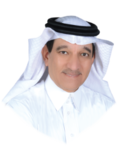Saudi Arabia hosted the UN Conference of the Parties 16 in Riyadh from Dec. 2-13, under the theme “Our Land. Our Future.”
The United Nations Convention to Combat Desertification is a UN initiative that represents a move to raise global ambition and accelerate action on land and drought resilience through a people-centered approach.
UNCCD is also the global voice for land and one of the three major UN treaties known as the Rio Conventions, alongside climate and biodiversity.
The Conference of the Parties, or COP, is the main decision-making body of UNCCD’s 197 parties — 196 countries and the EU.
Riyadh UNCCD COP16 is the largest-ever meeting of UNCCD’s 197 parties held in the Middle East region and the largest multilateral conference ever hosted by Saudi Arabia. It happened in the year that marks the 30th anniversary of UNCCD.
Coinciding with hosting COP16, the Kingdom held the 2024 fourth Saudi Green Initiative Forum on Dec. 3-4 under the theme, “Action is in our nature.”
On its first day, the fourth SGI forum highlighted five new initiatives valued at SR225 million ($60 million), reinforcing Saudi Arabia’s leading role in climate and environmental efforts.
With total investment exceeding SR705 billion, the 86 initiatives activated as part of SGI are delivering tangible progress toward the aims of all three Rio Conventions.
The SGI is a key initiative to deliver Saudi Arabia’s goal to create a greener future by reducing emissions, combating desertification and safeguarding natural ecosystems.
Since the launch of SGI, significant positive impact has been achieved, with more than 4+ GW of renewable energy capacity installed, 95+ million trees and shrubs planted and 1,660+ endangered animals rewilded across the Kingdom.
Additionally, Saudi Arabia has committed to reduce carbon emissions by 278 million tonnes annually by 2030, up from the previous commitment of 130 million tonnes. This will help industrial sectors to reduce their environmental impact and contribute positively to the Saudi Green Initiative.
The SGI is a key initiative to deliver Saudi Arabia’s goal to create a greener future by reducing emissions, combating desertification. and safeguarding natural ecosystems.
Saudi Arabia has an ambitious initiative to plant 10 billion trees, which would support the Paris Agreement’s long-term temperature goal to keep the rise in global surface temperature well below 2 degrees Celsius above pre-industrial levels, and preferably the limit of the increase should only be 1.5 degrees Celsius.
Saudi Arabia aims to generate 50 percent of the nation’s power needs using renewable energy by 2030, with the remainder provided by gas.
Saudi Arabia has executed the first world shipment of independently certified low-carbon ammonia to Japan in 2023 for use as fuel in power generation. This represents another milestone in the development of this lower-carbon energy solution.
During its presidency of the G20, Saudi Arabia launched the circular carbon economy concept. This integrated, comprehensive framework was adopted by G20 countries as a strategy to address greenhouse gas emissions. The concept focuses on four main strategies: Reduce, reuse, recycle and remove, to effectively manage and reduce carbon emissions.
These four strategies are in line with Saudi Vision 2030’s programs, which aim to achieve social transformation.
The Kingdom inaugurated the Sakaka solar power plant in Al-Jouf in 2021, as the first state-of-the-art using photovoltaic technology.
The plant generates electricity from the sun’s rays and is made up of more than 1.2 million solar panels set across 6 sq km of land.
As part of the National Renewable Energy Program, the Kingdom inaugurated the $500 million Dumat Al-Jandal wind farm in 2019.
The farm is the first and largest of its kind in Saudi Arabia, which became operational in 2022, with 99 turbines and a total capacity of 400 MW, capable of supplying electricity to about 70,000 homes.
The Public Investment Fund has established the Regional Voluntary Carbon Market Company, in which it holds an 80 percent stake, while the Saudi Tadawul Group Holding Company holds the remaining 20 percent.
Saudi Arabia has proven through its decarbonization initiatives that it can lead the world’s efforts to transition to zero carbon emissions and create an environment for better living.
• Talat Zaki Hafiz is an economist and financial analyst. X: @TalatHafiz












